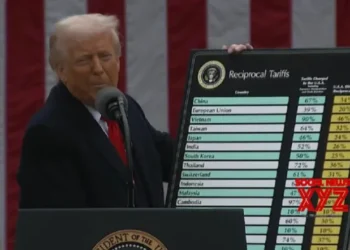Best friends to the rescue: On COVID frontlines, when not getting belly rubs
Bobby was a good boy. So was Bravo. Angel was a good girl, and when she sat, furry hindquarters sliding a little on the tile floor, she raised a paw for emphasis, as if to say, it’s this cotton ball that my keen nose has identified, the one that smells like COVID-19.
The three Labradors, operating out of a university clinic in Bangkok, are part of a global corps of dogs being trained to sniff out COVID-19 in people. Preliminary studies, conducted in multiple countries, suggest that their detection rate may surpass that of the rapid antigen testing often used in airports and other public places.
“For dogs, the smell is obvious, just like grilled meat for us,” said Dr. Kaywalee Chatdarong, deputy dean of research and innovation for the faculty of veterinary science at Chulalongkorn University in Bangkok. The hope is that dogs can be deployed in crowded public spaces, like stadiums or transportation hubs, to identify people carrying the virus. Their skills are being developed in Thailand, France, Britain, Chile, Australia, Belgium and Germany, among other countries. They have patrolled airports in Finland, Lebanon and the UAE, and private companies have used them at American sporting events.
Angel, a pale blonde with incipient jowls and a fondness for crunching plastic bottles, is the star of the pack at Chulalongkorn University. But as a group, the dogs being trained in Thailand — Angel, Bobby, Bravo and three others, Apollo, Tiger and Nasa — accurately detected the virus 96.2% of the time in controlled settings, according to university researchers. Studies in Germany and the United Arab Emirates had lower but still impressive results. Sniffer dogs work faster and far more cheaply than polymerase chain reaction, or PCR, testing, their proponents say. An intake of air through their sensitive snouts is enough to identify within a second the volatile organic compound or mixture of compounds that are produced when a person with COVID-19 sheds damaged cells, researchers say.
“PCR tests are not immediate, and there are false negative results, while we know that dogs can detect COVID in its incubation phase,” said Anne-Lise Chaber, an interdisciplinary health expert at the School of Animal and Veterinary Sciences at the University of Adelaide in Australia who has been working for six months with 15 COVID-sniffing dogs.
Some methods of detection, like temperature screening, cannot identify infected people who have no symptoms. But dogs can, because the infected lungs and trachea produce a trademark scent. And dogs need fewer molecules to nose out COVID than are required for PCR testing, Thai researchers said.
The Thai Labradors are part of a research project run jointly by Chulalongkorn University and Chevron. The oil company had previously used dogs to test its offshore employees for illegal drug use, and a Thai manager wondered whether the animals could do the same with the coronavirus. A dog’s ability to sniff out COVID-19 is, in theory, no different from its prowess in detecting narcotics, explosives or a Scooby snack hidden in a pocket.
The six dogs were assigned six handlers, who exposed them to sweat-stained cotton balls from the socks and armpits of COVID-positive individuals. Researchers say the risks to the dogs are low: The coronavirus is not known to be easily transmissible through perspiration, a plentiful commodity in tropical Thailand. Instead, the main transmission route appears to be respiratory droplets.























